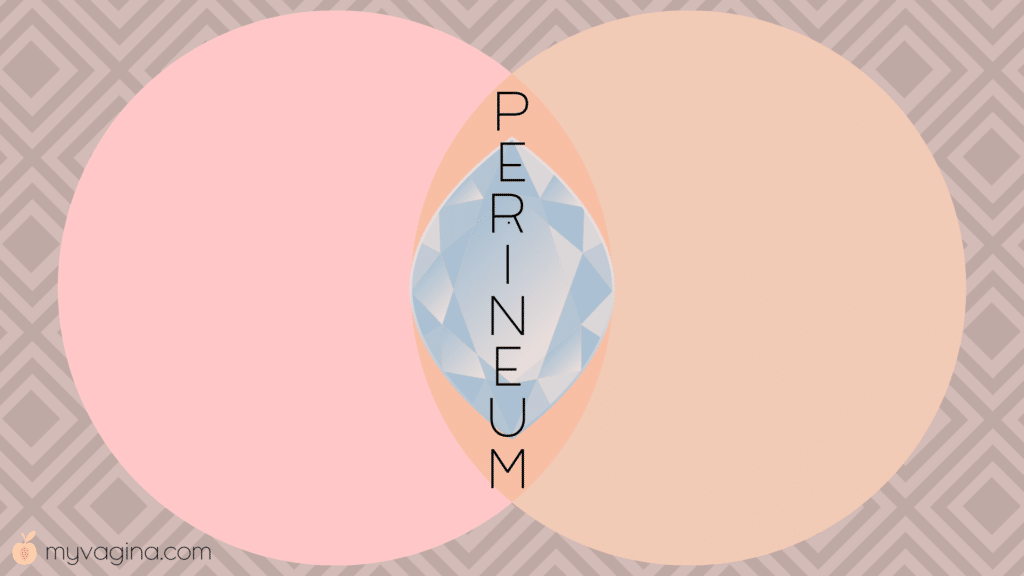The perineum is the area between the thighs that joins the vulva (vaginal lips) and the anus. The perineum forms a diamond shape, that when the legs are wide, can be split into two triangles: the urogenital triangle and the anal triangle. The peri-anal area is a subsection of the perineum.
The perineum has a roof of muscles – the pelvic floor muscle – and a floor of skin and connective tissue (fascia). The perineum also holds muscles and nerves that interact with the urinary system, genitals and anus.
The perineum is an erogenous zone.
The urogenital triangle
The urogenital triangle holds the opening of the vagina, urethra and clitoris, with deep and superficial layers of fascia, perineal muscles, and a layer of fat. The fatty layer makes up the outer labia (labia majora) and mons pubis. Fascia is a special type of connective tissue.
The anal triangle
The anal triangle contains the anus and what’s known as the ischioanal fossae – two wedge-shaped spaces between the skin around the anal canal and the pelvic floor muscle. This design allows for support for the anal canal when nothing is happening but allows for expansion during bowel movements.
Where the perineum’s edges are
The perineum is the area between an area known as the pubic arch and the tailbone (coccyx). You can feel the pubic arch if you reach between your legs and feel the edges, the bones that sit at the very top of the thighs, right on the edge of the vulva.
There is some variability when it comes to boundaries and what is included when we say ‘perineum’. Generally, the perineum is the surface region and includes the vaginal entrance. It may or may not include deeper structures.
The central tendon of the perineum (perineal body) is a fibrous, muscular mass in the centre line. This tendon is essential for the pelvic floor, but it can rupture during childbirth. Once ruptured, prolapse is more common.
Tearing and episiotomy during childbirth
During a vaginal delivery, the perineum may tear or be cut, a procedure known as an episiotomy. Tearing can occur in only the first birth, or in subsequent births.
These tears may be prevented by preparing the perineum, which can be achieved using massage techniques. A specific abdominal massage is Mayan abdominal massage, but there are many forms.
The words
Perineos perinaeon are late Latin words from Greek, with peri meaning around and inein meaning to discharge or defecate.







